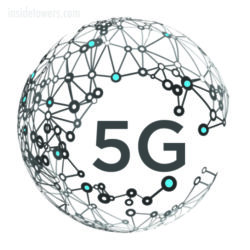The European Commission has expanded the frequency available for 5G and beyond. EURACTIV reported that the availability now extends to “pioneering bands,” including 2G, 3G, and 4G.
“Several EU countries have already started expanding the spectrum available for 5G. The fact that the Commission made a binding decision is important towards technological neutrality,” said ICT legal expert Innocenzo Genna.
The EU’s 5G Action Plan outlines that all major urban areas should be equipped with 5G coverage by 2025. Currently, an estimated 99.5 percent of the European population is utilizing 4G, according to the European Telecommunications Network Operators’ association (ETNO). Achieving the 5G Action Plan objective will require reallocation of frequency bands currently in use or new band availability, reported EURACTIV.
As the world moves to 5G technology, Gérard Pogorel, a professor at Télécom Paris and former adviser to several European governments on ICT matters, said it will be necessary for older networks — 2G and 3G — to be phased out simultaneously throughout the EU. EURACTIV reported that some industries are resistant to the discontinuation of older networks. For example, the automotive industry relies on 2G for parts of its operations, and natural disaster alerts run on 2G.
“In the eventual case of 2G/3G switch-off, the spectrum could be repurposed for 4G and 5G technologies. There are two benefits here: mobile network operators would reduce deployment costs, and it would improve the quality of networks,” said Gabriel Daia, ETNO’s communications manager.
EURACTIV reported that the “sluggish” rollout of 5G across Europe is partly due to the slow pace of spectrum allocation. By October 2021, member states had only assigned 53 percent of the total 5G spectrum that was supposed to be available by the end of 2020.
The 5G rollout is not yet complete across Europe, and already industry players are looking ahead to 6G and how WiFi could impact the market. Martha Suárez, president of the Dynamic Spectrum Alliance, an association that includes Amazon, Facebook, Google, and Microsoft, commented on how the EU could avoid falling behind its global competitors. “We urge the Commission and the member states to proceed swiftly with opening the rest of the 6 GHz band for license-exempt use by [WAS/RLAN] technologies, such as WiFi,” said Suárez.





Reader Interactions